The list of the positive aspects of travel is inexhaustible, and there is no shortage of articles online and in print that detail the joys of taking a long-term trip. Every time we take to the road we discover something new about ourselves and about the world.
But to only document the positive side of long-term travel would be to paint an incomplete picture of what it can do to your relationships, your body, and your mind.
The side effects explored in this article usually only apply to those who’ve taken long-term trips lasting a year to many years, or who have lived outside their home culture for extended periods.
But to only document the positive side of long-term travel would be to paint an incomplete picture of what it can do to your relationships, your body, and your mind.
Depending on your personality and personal history, all may not apply, but in general those listed below tend to affect many travelers who have drifted for long periods in alien cultures.
Expect to be outside your native culture
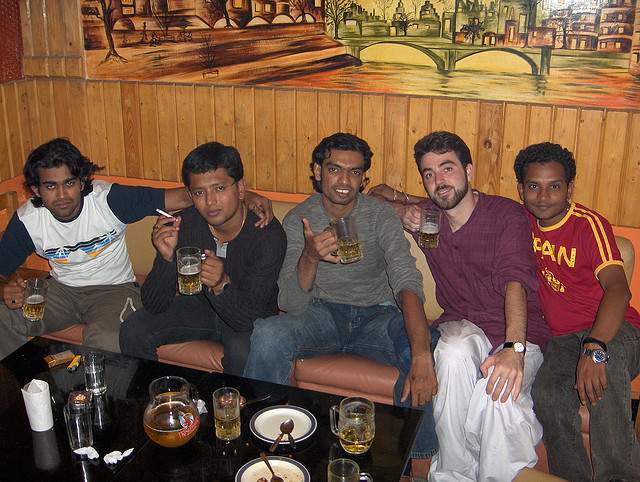
“Traveling – it gives you home in thousand strange places, then leaves you a stranger in your own land.” ― Ibn Battuta.
Everyone is born into a culture, though not necessarily the right culture. Culture is imposed, and there is no better way to see the nature of this imposition than to depart from your inherited culture. Once on the outside; however, there is no going back.
Long-term travel, if we are observant and open-minded, will reveal the immense legacy of conditioned actions that permeate nearly every aspect of the lives we previously led, from the way we constructed reality to the way we negotiated space or treated our mothers.
Long-term travel, if we are observant and open-minded, will reveal the immense legacy of conditioned actions that permeate nearly every aspect of the lives we previously led.
Long-term travelers become like fish who come to see that they are surrounded by water, and once they’ve seen it, there is no way to forget it. Long-term travel shows us to ourselves from so many radically different perspectives that it is almost impossible to return to any past mode of being.
Long-term travel challenges the very ground we walk on.
The nature of relationships on the move
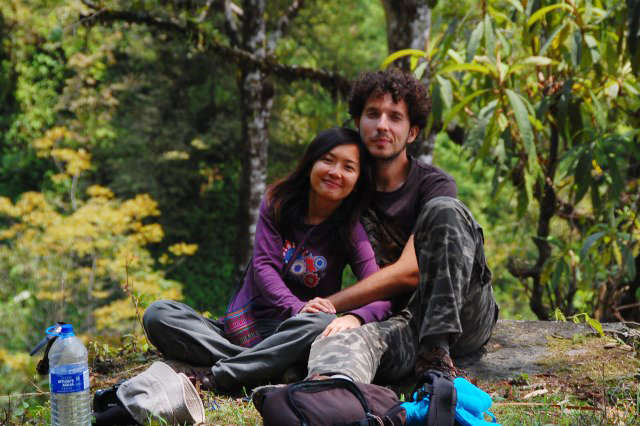
Relationships on the road are nearly always transitory, and those that are not will encounter difficulties undreamed of by those who share the same settled space. If you think the opposite sex is difficult to understand now, wait until you pour an ocean of cultural misunderstandings into the mix.
Though such differences certainly add a great deal of beauty and dynamism to a relationship, one should be prepared for the accompanying difficulties.
Though such differences certainly add a great deal of beauty and dynamism to a relationship, one should be prepared for the accompanying difficulties. It takes an enormous leap to abandon your previous life to follow your heart, but more likely than not the end will constantly be looming in the distance. The potency of such brief and intimate encounters; however, can be otherworldly.
Read Love and Long-Term Travel: Can It Work?
It’s difficult to have a “home”
Once on the road, many travelers move through “homes” like a snake through skins, and the loss of each home will be like the loss of another world. One year you may find yourself down and out in Istanbul, the next year hitchhiking back to your fiancé in Himachal Pradesh, and the next year in Xinjiang or Venezuela.
Having had so much of the world opened up to you how, could you expect to be able to remain in one place? Learn to travel light, both physically and mentally.
Expect not to be understood by people from your past
One undergoes constant transformations when traveling. But in the eyes of those who knew you before you left, you will reappear to fill the same vacuum you left when you went away – except now you are radically different.
Don’t expect others to understand. You’ve seen a different world. You’ve experienced things non-travelers have not experienced. They cannot see the images and worlds that now populate your mind, and words will rarely bring you any closer to an understanding. When you return, you may feel alone at times with your experiences and revelations.
If and when you do go back home, it’s important to join different communities – online or in your hometown, so you can share memories and thoughts and insight with others who have undergone similar experiences.
Loneliness
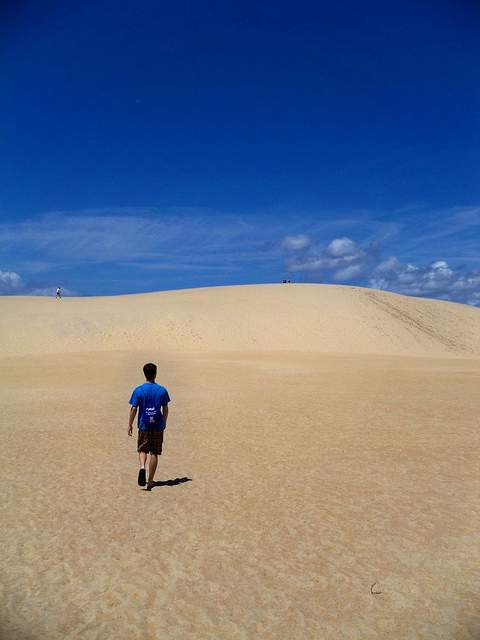
Never will you feel so alone as in a time of crisis in a foreign country. If you are traveling alone in a faraway land and get injured or sick, you will immediately come to see how isolated you really are, and how much your survival at that moment depends on the kindness of strangers.
If you find loneliness hard to cope with and wish to overcome it, there is no better antidote than setting out on a long-term adventure.
Many long-term trips are done alone, and you should expect to spend much of your time traveling alone, or with a crowd of temporary companions. If you find loneliness hard to cope with and wish to overcome it, there is no better antidote than setting out on a long-term adventure.
The positive side of this is that the more you are alone, the more you will come to know yourself, and the more at home you will feel with your solitude.
Losing touch with previous realities
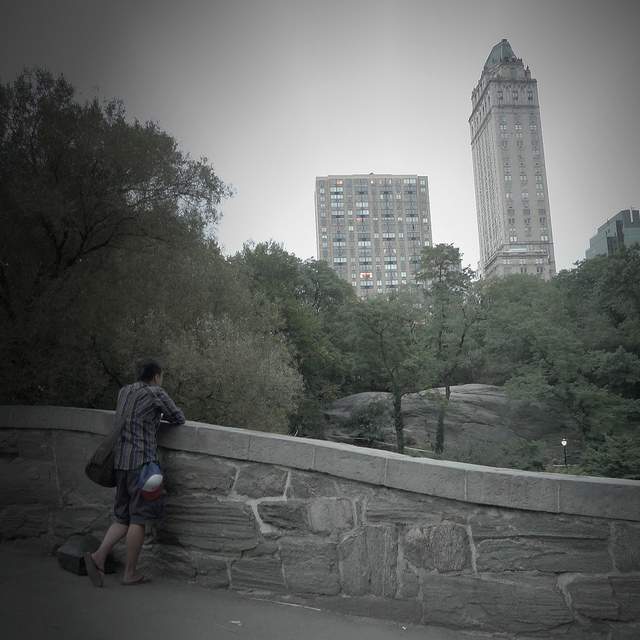
Whenever we settle into a new place, a new world of sense and meaning rises around us. There are new truths to cope with, new realities to negotiate, new daily rituals. Things we have done in the past stop making sense, and we are slowly swallowed up by the new world until the ways we once thought and were become as alien to us as the new ways.
Everyone goes through transitions, often borne of traumatic life events, but few things more dramatically alter our lives as prolonged exposure to foreign cultures on the road.
One moment we may be in love, and in love with where we live, with a whole life of meaning and ritual around us, and the next we may found ourselves a completely different person in a completely different land. The more you are attached to your previous life, the more difficult this transition may be. Everyone goes through transitions, often borne of traumatic life events, but few things more dramatically alter our lives as prolonged exposure to foreign cultures on the road.
Vagrancy
Whatever style consciousness you may have, you might need to defer for the time being. There will be no room in your pack for fancy boots and handsome jackets. Though you may choose to sacrifice valuable pack space for wardrobe, you’re likely to simply become your one most comfortable outfit, wearing it day and night and sometimes for days on end, appearing at salsa bars in a North Face hoodie or wandering around alien cities in swimming trunks while your clothes dry on the branches of trees in your hostel courtyard.
Get used to unkempt hair and the grime that accumulates on your skin and inside your pack after days on trains or buses. Depending on how slow you move, there’s a good chance you’ll wake up in a different town every few days, sometimes with little idea of where you are or how you got there. Many of the comforts and conveniences of settled life will be gone, sometimes making even the most simple tasks day-long affairs, particularly if you’re in a country where you don’t speak the language.
The awareness of all the lives you could have led but didn’t
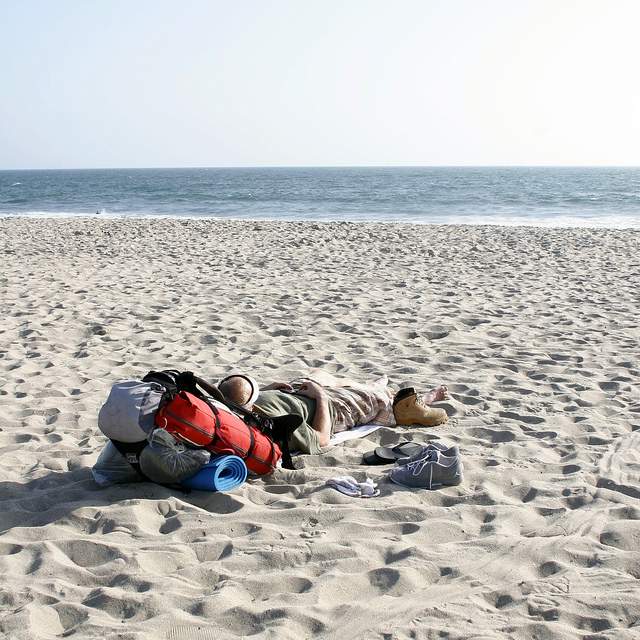
We all experience the phenomenon so well expressed in Robert Frost’s poem The Road Not Taken. In times of introspection, we often find ourselves drifting back to the major decisions of our lives, each having turned us down different paths, which together have combined to make up the singular road that has brought us to the life we are now leading.
The difference is the sheer immensity of possibility of lives opened up by long-term travel. Each day opens up another possibility, each often radically different from the previous.
You need not travel to experience this feeling. The difference is the sheer immensity of possibility of lives opened up by long-term travel. Each day opens up another possibility, each often radically different from the previous.
- “What if I remain here instead of moving on?”
- “What if I choose to throw down roots in this foreign country so far from where I was born?”
- “What if I had chosen to give up my wayfaring ways and marry that man or woman I fell so deeply in love with long ago?”
- “How different would I be had I chosen to become obsessed with Africa rather than Central Asia?”
The long-term traveler finds themselves aware of so many of life’s possibilities that it may feel overwhelming at times.
Longing
Displacement can distort our relationship with the past and with ourselves, and the more radical the distance, the more radical the distortion. When the things we have always done stop making sense we often find that we ourselves stop making sense, and we drift into something akin to limbo.
Long-term travel leads us into a vortex in which nearly every aspect of our lives may be questioned. As we reach out for firm footing, we are bound to begin longing for the familiarities and comforts of the past, whether it be for one’s culture, family, or friends. As we drift, certain aspects of our home are likely to take on near mythical importance. Even if we are discontent with our home culture, we are still bound to long for it when away, and the act of longing itself will cause our memories to distort, especially if we are discontent in our present circumstances.
Even if we are discontent with our home culture, we are still bound to long for it when away, and the act of longing itself will cause our memories to distort.
Whereas settled people often long for things of the imagination, the long-term traveler tends to long for things grounded in experience, regardless of how distorted those experiences become in memory. The more we experience, the more we have to long for. When on the road, we often long for home, and when at home we often long for the road. It is the traveler’s blessing and the traveler’s curse.
Have you been on the road for lengths of time before? How accurate is David’s description of the mind of a long-term traveler? Have you gone through these same feelings and emotions? Comment below.
To read more on the realities of long-term travel, check out:
- Confessions of a Lifestyle Traveler
- How to Deal with the Downsides of Long-Term Travel
- 15 Things You Won’t Miss About Long-Term Travel
Photo credits: Chun-Hung Eric Cheng, Elia Scudiero, Real Michael
